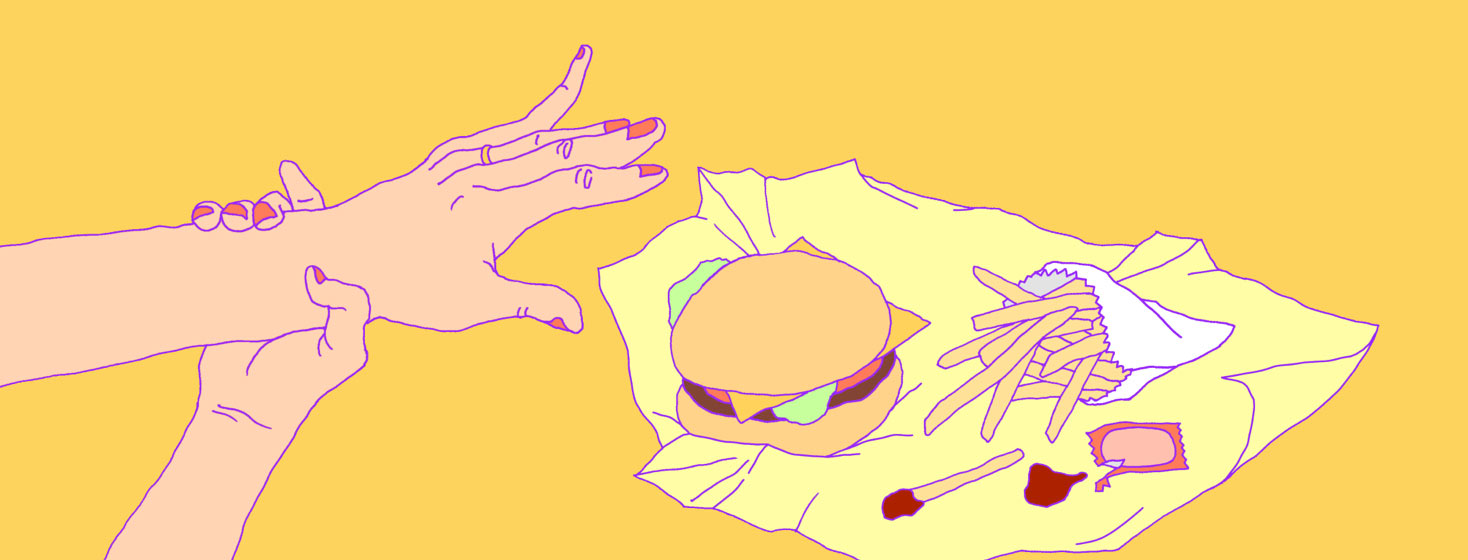Fast Food No More
By now, I'm sure we've all been told by a doctor — or someone else — about the importance of a healthy diet and not consuming a lot of fast food. And while this might be true, sometimes you can't just drive past a good fried chicken sandwich or cheeseburger drive thru.
However! I recently had a weird experience that changed my perspective on fast food's effects on my heart, which now makes me more reluctant to consume fast food — even on an infrequent basis.
Anxiety and rapid heart rate after eating
A few days before I was set to leave on vacation, I thought that I would kickstart my vacation early by going to a fried chicken shop with one of my friends, both to catch up and to have a relatively unhealthy meal for vacation. The meal itself did not taste the best, but it was still fun to catch up with some friends.
A couple of hours after eating this meal, I noticed that my heart was beating very rapidly, and there was some tightness in my chest. I know these sound like heart attack symptoms, which worried me, but it didn't feel like what people discuss as heart attack symptoms. Rather, it felt like a mixture of anxiety and rapid heart rate.
Chest tightness and pain
While lying in bed, I could feel my heart beating rapidly. I was sweating a lot and in a general state of anxiety. Of course, I could have just been experiencing an increase in anxiety with the pain; however, this feeling did not start until after I had eaten my chicken and fries, so it's the only thing I can think of that would cause these symptoms.
Additionally, I also felt some tightness in my chest. It wasn't tingly or a sudden influx of pain; rather, it hurt when I would turn my head or lift up my arms. This has happened to me a few times before, too; for instance, after eating something very salty like Taco Bell or a frozen pizza.
The impact of too much salt on the heart
The Cleveland Clinic says that too much salt can cause an increase in heart rate and therefore high blood pressure, even immediately after eating a very salty meal. It can even negatively impact our sleep.1
I'm sure many of us have already heard this — especially if you've been to a cardiologist — but staying away from extra salt is especially important if you have heart disease or a heart condition, which the Cleveland Clinic also confirms. And which foods have the most salt/sodium? Often, it's fast food — like the fried chicken and fries I had.
A reminder of the importance of eating well
I want to emphasize that having fast food occasionally is okay for most people. And who knows? Maybe it wasn't entirely the fast food that caused my chest to feel tight and my heart rate to increase rapidly.
It could be that I was anxious about my upcoming vacation. It could be I had too much coffee that day. Or it could be a combination of all of the above. But this experience reminded me of the importance of eating well and not overindulging in high-sodium foods — especially when you have a heart problem.
Do you have a story to share about how you changed your diet? Submit a story by clicking the button below.

Join the conversation